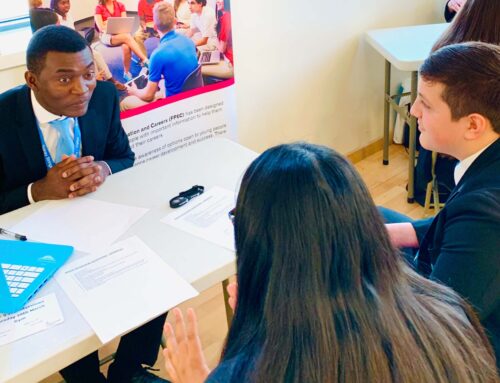
A key focus for professional practice is the importance of reflection and being a reflective practitioner. Reflective practice is one of the core competences you are expected to address in initial qualifications for all helping, career and teaching professions and for the career development sector the National Occupational Standards: Career Development requires you to ‘Reflect on, develop and maintain your own skills and practice in career development’. As practitioners and professionals we all have the power to reflect but the level to which we engage may vary…
Taken from CPD for the Career Development Professional by Siobhan Neary and Claire Johnson

We are told that it is important to learn from our mistakes – that by learning from our mistakes we will be prepared next time, as we will know what worked and what didn’t. A common misapprehension is that reflection is only about learning from mistakes, and although it is important that we recognise when things don’t work, reflection is much more than this. Reflection is about reviewing our practice to help us learn from what works and what doesn’t. But also, reflection helps us to think about what we have done and why we made the choices that we made.
Reflection will not productively happen on its own. As a professional practice activity it is something you need to address. Below are some strategies that can help you to be more effective in reflecting on practice.
-
Create time
Plan to build reflective practice time into your work. You can do this with other people and introduce some of the feedback activities we have discussed.
-
Move towards ‘How’ rather than ‘Why’
When you are reflecting – how might you use what you have learned? This is a proactive stance that should be adopted in all learning activities.
-
Tools
Try and use a tool to help you with your reflection, such as a model, diary, recording. This will help to formalise what you do; you can also refer back to it. You might want to try out different approaches to see what works best for you, or use a variety of activities regularly depending on where you are.
-
Be iterative
Reflections aren’t a one off-activity, they are cyclical. Review what you have done as a result of the reflection and reflect on that. This will help to embed the learning.
-
Disseminate your learning
Find new ways (discussion groups, blogs) to share your learning and elicit feedback from others.

Emma Davies works within the editorial department at Trotman Publishing. Graduating from her Masters degree in 2017, she is familiar with all aspects of the student journey through university. She is passionate about helping students find the right career, and was a member of the SYP’s inaugural committee in the South West.





